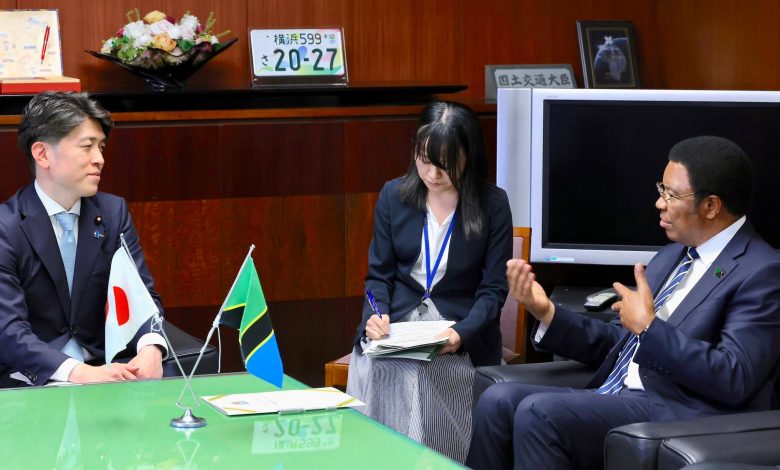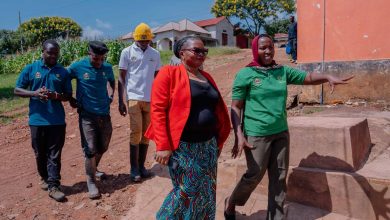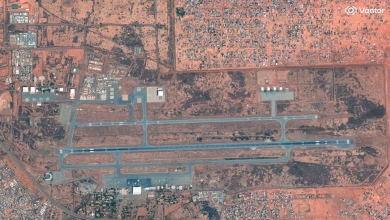Tanzania pushes for more Japanese investments

JAPAN: PRIME Minister Kassim Majaliwa has urged major Japanese investors and business leaders to increase their investments across various sectors in Tanzania, assuring them that the government has made significant improvements to foster a more conducive business environment.
Mr Majaliwa highlighted key sectors offering investment opportunities, including agriculture, health, the blue economy, energy, infrastructure, livestock and Information and Communication Technology (ICT).
He made the remarks during a separate meeting with leaders of the Japan Federation of Economic Organisations (KEIDANREN) and the Japan Association of Corporate Executives (KEIZA DOYUKAI) in Tokyo as part of his official working visit.
“We warmly welcome Japanese companies to seize the numerous investment opportunities available in Tanzania, supported by a peaceful business environment, policy reforms and ongoing efforts to reduce bureaucracy,” Mr Majaliwa said.
On Tuesday, Mr Majaliwa also met with Japan’s Deputy Minister for Land, Infrastructure, Transport and Tourism (MLIT), Kenichi Ogasawara and the President of the Japan-Africa Infrastructure Development Association (JAIDA), Miyamoto Yaichi.
During the meeting held at MLIT offices, attended by presidents of major Japanese investment companies, the Primier invited the investors to take advantage of opportunities in energy, infrastructure, tourism, agriculture and trade sectors.
ALSO READ: STAMICO sets sights on strategic mineral investments
He highlighted Tanzania’s strengthened capacity building efforts, welcoming Japanese companies to provide training and knowledge exchange programmes that will enable Tanzanian engineers, urban planners and infrastructure experts to benefit from Japan’s advanced technology and innovation.
“Japan has remained one of Tanzania’s key development partners. Over many years, the two countries have built strong ties, particularly in infrastructure development. We deeply appreciate this relationship and the significant contributions of Japanese companies to our national development,” he said.
The Prime Minister underscored the government’s belief that quality infrastructure plays a vital role in economic growth, improving living standards, facilitating trade and enhancing regional cooperation. “Tanzania aims to continue upgrading its road networks, railways, ports and airports,” he noted.
“These are critical areas for strengthening domestic and regional connectivity. Major projects like the Standard Gauge Railway (SGR) and the expansion of the Dar es Salaam and Mtwara ports are concrete examples of our commitment to making Tanzania a regional transport hub,” he added.
On his part, Deputy Minister in the President’s Office (Planning and Investment), Mr Stanslaus Nyongo informed investors and business leaders about the government’s plans and strategies to attract more investment across various sectors.
He also noted that the government is progressing with the development of the National Development Vision 2050 which will significantly guide the identification of priority investment areas aimed at accelerating national economic growth.
The Resident Representative of the United Nations Development Programme (UNDP) in Tanzania, Shigeki Komatsubara affirmed that Tanzania will continue to benefit from Japanese expertise and technology in sectors including infrastructure and human resources development.
Earlier this week, the government of Tanzania and Tokushukai, an organisation comprised of Japanese doctors who have long supported the improvement of healthcare services in the country signed a Memorandum of Understanding (MoU) for the construction of the centre which will be built in Tanzania.
ALSO READ: Liberty Sparks’ report on Tanzania’s economic freedom attracts new investments
The signing ceremony was witnessed by Prime Minister Majaliwa during the Tanzania-Japan Business, Investment and Tourism Forum in Osaka, Japan.
The centre will be built at the Benjamin Mkapa Hospital in Dodoma through a collaboration involving the Japanese medical organisation Tokushukai and the University of Dodoma (UDOM). The project is expected to cost over 28bn/- and is being provided as an unconditional grant.






415572 216204I dont agree with this particular write-up. Even so, I did researched in Google and Ive located out that you are correct and I had been thinking in the incorrect way. Continue producing quality material related to this. 192603